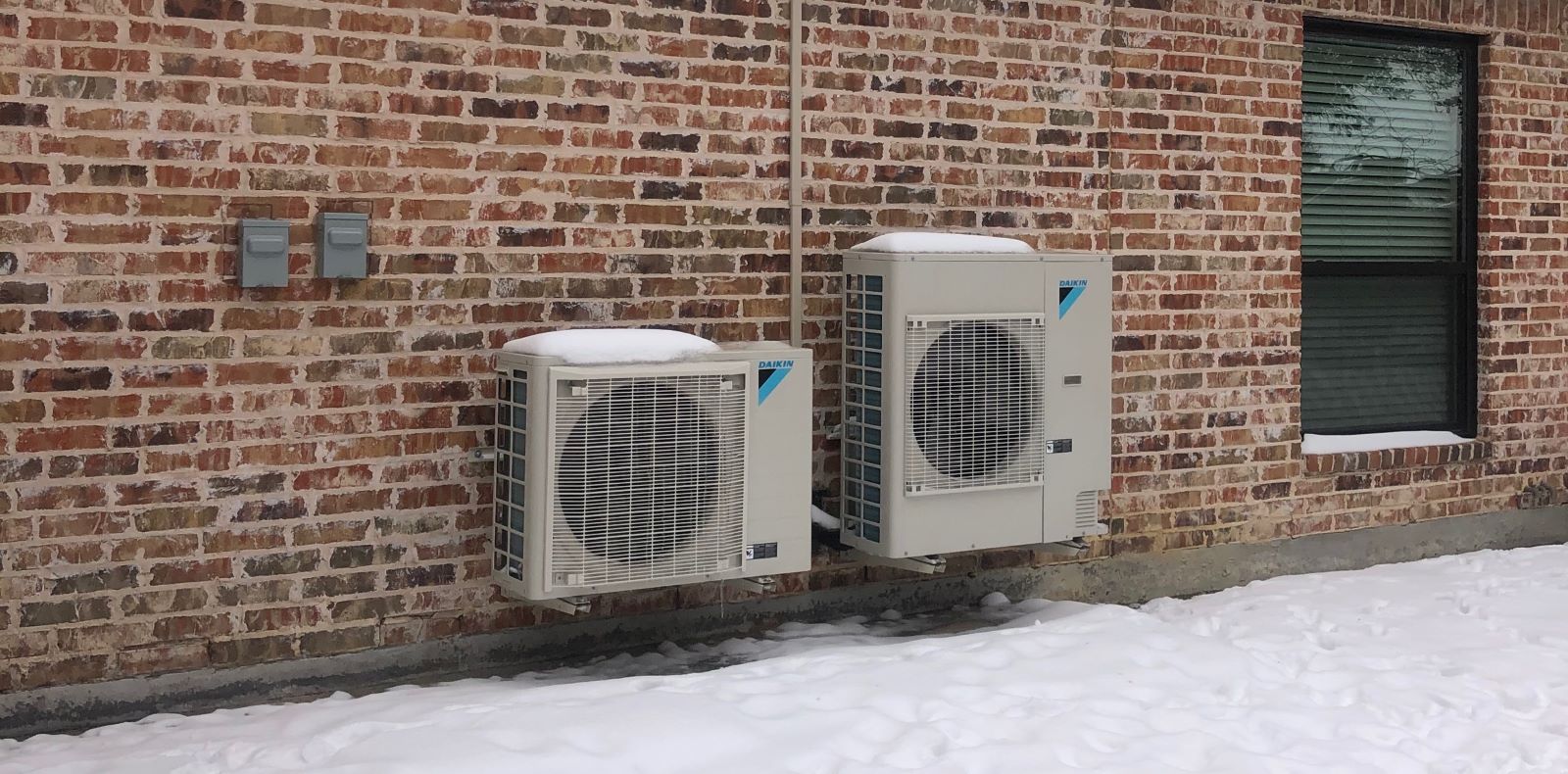
Do heat pumps work in freezing temperatures? Heat pumps are growing in popularity as a year-long heating and cooling option. While they’ve been popular in southern states for years, homeowners in St. Louis and other more northern parts of the country rightly wonder if heat pumps can maintain a comfortable temperature in the depths of winter.
So, do heat pumps work in freezing temperatures? The short answer is yes, heat pumps work just fine in extremely cold climates, and St. Louis homeowners have no reason to worry about whether or not a heat pump will be able to reliably heat their home in the winter.
Heat pumps, by design, don’t generate heat but transfer it. This fundamental distinction sets them apart from traditional heating systems that burn fuel to produce warmth. In warm weather, heat pumps use a refrigeration cycle–similar to an AC–to keep the air in your home cool and dispel the warm air. In cold weather that process is simply reversed.
The question over whether or not heat pumps work in cold temperatures refers largely to air source heat pumps, which are the most common heat pumps installed in homes. Ground source, or geothermal heat pumps, get their heat from the underground earth or water, which are at much more constant temperatures than the outside air.
Heat pumps depend on a couple simple scientific facts to heat homes:
A heat pump has two coils: one in the outdoor unit and one in the indoor unit. Those coils evaporate and condense heat to transfer that heat. To heat a home (bring heat from outside to inside):
While it’s true that older heat pumps couldn’t always heat a home in freezing temperatures, newer heat pumps can because of a variety of technological advancements:
Finding hot air in freezing temperatures causes your heat pump to work harder, but in most cases it’s still much more energy efficient to rely on a heat pump than a conventional heating system. ENERGY STAR-certified air source heat pumps have been tested in temperatures as low as 5℉ and can work in temperatures even lower. It’s worth mentioning that ENERGY STAR recommends having a backup heat source if temperatures reach lower than 5℉, as they do in St. Louis.
Whether you’re considering a new heat pump installation for your home or are looking to have an HVAC maintenance appointment before winter comes, SmartHouse Heating & Cooling is here to help. With honest advice, whole home experts, and expert workmanship, we can help make any home in the St. Louis area more comfortable and energy efficient.